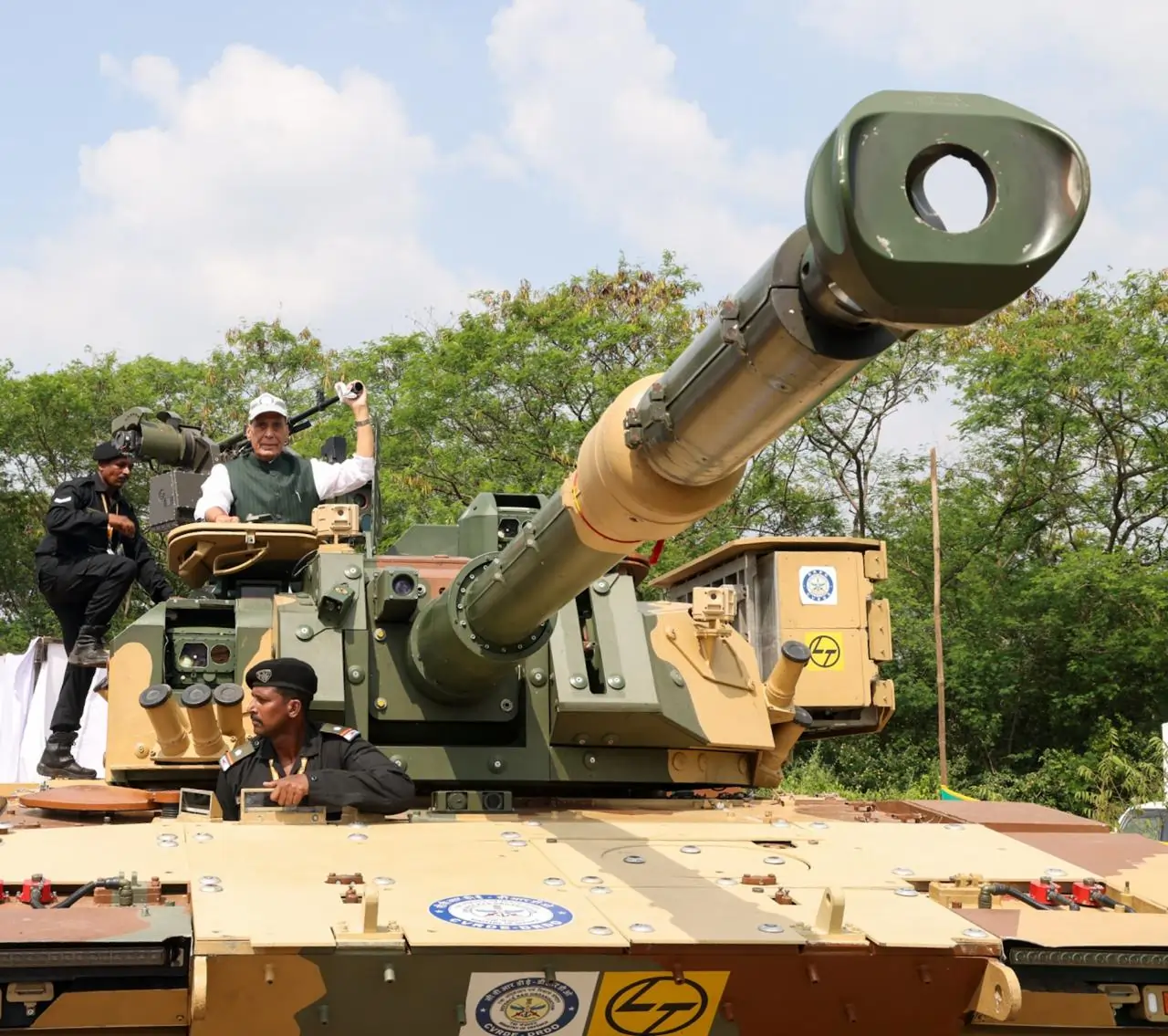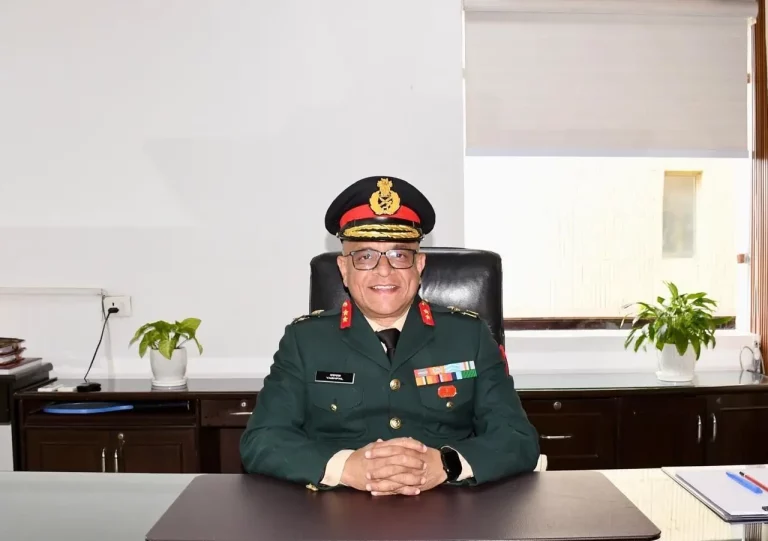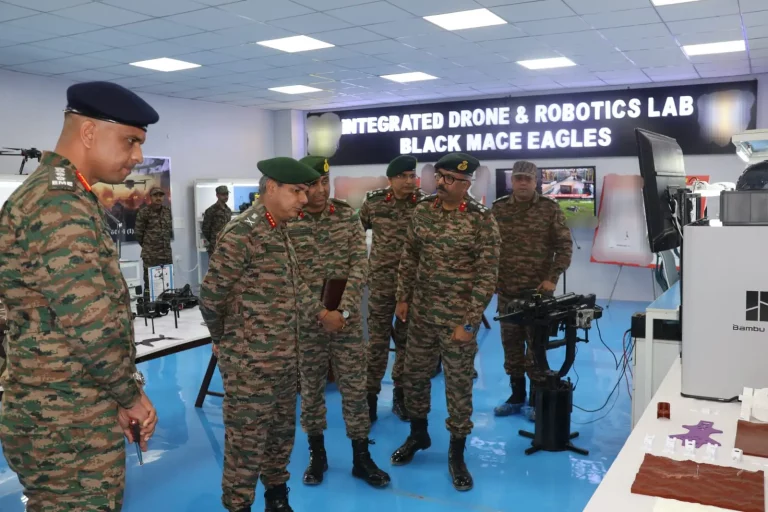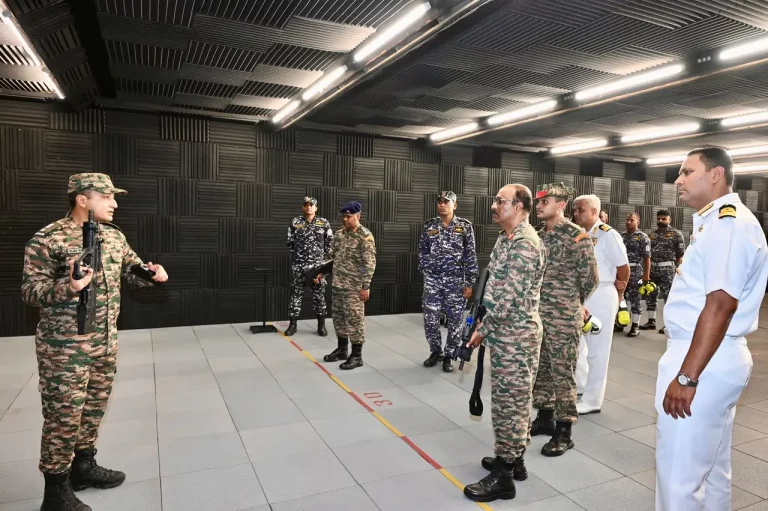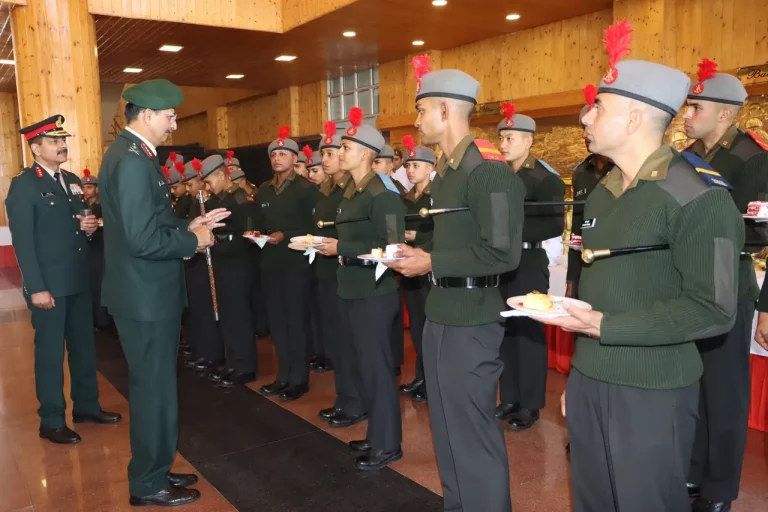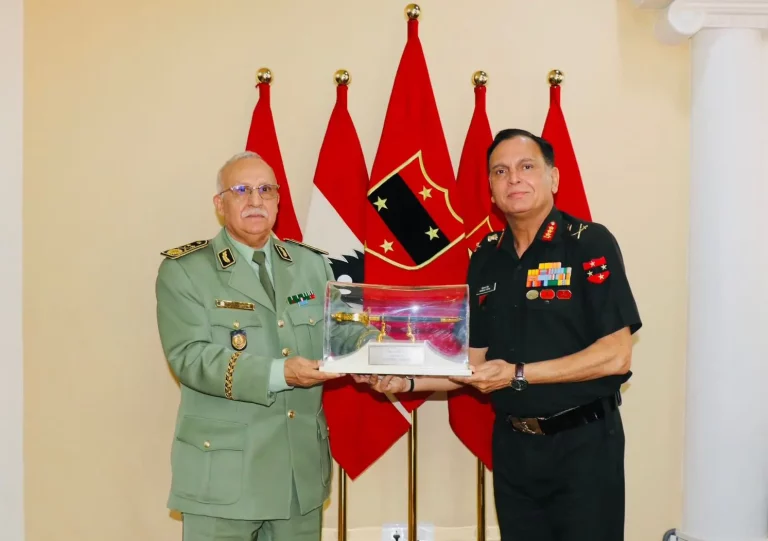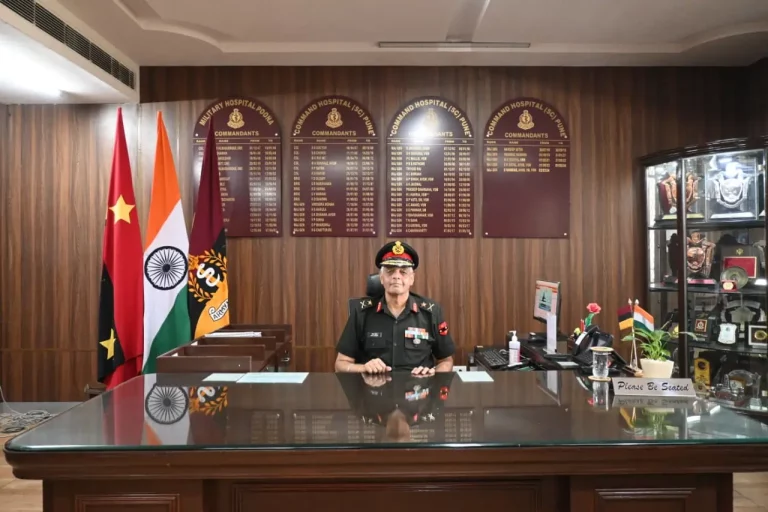The Consultative Committee for the Ministry of Defence, led by Raksha Mantri Shri Rajnath Singh, recently visited the Armament Research & Development Establishment (ARDE) in Pune, a key laboratory under the Defence Research and Development Organisation (DRDO) focused on Armament & Combat Engineering Systems. This visit serves as a testament to India’s commitment to achieving technological self-reliance and enhancing indigenous defence manufacturing capabilities.
During the visit, committee members inspected an array of cutting-edge defence systems developed by the ACE cluster of DRDO. Among the showcased technologies were the Advanced Towed Artillery Gun System (ATAGS), the PINAKA Rocket System, the Light Tank ‘Zorawar’, and the Wheeled Armoured Platform, in addition to the AKASH-New Generation Missile. Officials provided comprehensive updates on emerging technologies including Robotics, Rail Gun systems, Electromagnetic Aircraft Launch Systems (EMALS), and High-Energy Propulsion Materials. Discussions also revolved around a future roadmap outlining the cluster’s research and development priorities.
In his address to the committee, Shri Rajnath Singh emphasized the criticality of innovation and adaptability in contemporary warfare, stating, “Today is an era of technological dominance. The nation that prioritises science and innovation will lead the future.” He underscored that technological advancements are now central to India’s strategic and defence decision-making processes, reaffirming the government’s pledge to incorporate advanced technologies into national security frameworks.
Shri Rajnath Singh articulated the imperative for India to transition from being merely consumers of technology to becoming creators. He noted, “Aatmanirbharta in defence is not just a goal; it is the strongest shield for national security,” stressing the urgency to expedite efforts towards self-reliance. He also acknowledged challenges posed by global protectionism that often limits access to disruptive technologies, yet remained optimistic about India’s ability to navigate these hurdles through robust policies and clear intent. “India is not only meeting its own needs but is also becoming a trusted defence partner for the world,” he affirmed.
Moreover, the Raksha Mantri commended DRDO’s achievements in developing technologies that were historically reliant on imports, bringing them up to par with global standards. He highlighted India’s evolving R&D landscape, which is increasingly becoming a collaborative effort involving industry, academia, and start-ups. “DRDO, public sector enterprises, private industries, start-ups, and academia are together setting new benchmarks in defence innovation,” he stated, recognizing the contributions of young innovators in fields such as artificial intelligence, cybersecurity, robotics, quantum communication, and space technology.
Members of the Consultative Committee expressed satisfaction with the advancements made by DRDO’s ACE cluster and provided constructive suggestions for future policy directions. Shri Rajnath Singh assured the committee that their feedback will be duly taken into account as the ministry seeks to enhance its defence capabilities.
The meeting saw the participation of several key officials, including Raksha Rajya Mantri Shri Sanjay Seth, Chief of Defence Staff General Anil Chauhan, Defence Secretary Shri Rajesh Kumar Singh, Secretary (Defence Production) Shri Sanjeev Kumar, DRDO Chairman Dr. Samir V Kamat, as well as senior officials from the Ministry of Defence and scientists from the ACE cluster.
